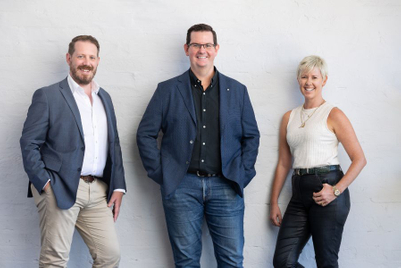
Snapchat is talking up what is describes as the unique mentality of its user base in the platform’s first global B2B campaign, “Meet the Snapchat generation”.
The campaign, created by Snap’s global business marketing team and internal creative team, alongside creative and production partner SpecialGuest, is running in the US, Canada and Australia from today.
Comprising targeted broadcast, print and digital advertising, it features messages of endorsement from existing advertisers including Frito-Lay, Starling Bank and the NFL. It will run in the UK from 17 August, followed by the rest of Europe and MENA from 24 August.
Despite the use of a word usually used to refer to an age cohort (such as millennials), chief marketing officer Kenny Mitchell told Campaign the “Snapchat generation” was not defined by age, but by the mentality of the brand’s users, which he said set it apart from other social media and messaging platforms.
“It’s a group of people who fundamentally believe in the power of visual communications in connecting with their close friends,” he said. As well as having an affinity for the format of Snapchat, he said its users were especially socially conscious. “They have this notion that they believe they have the power and responsibility to change the world.”
For example, 82% of users say they believe they have a personal responsibility to create the change they want to see in the world, while 80% believe companies have a role to play in solving social issues.
While Snapchat is often associated with younger users, Mitchell said its older user base was growing, and claimed that a significant proportion of users over the age of 25 opted for Snapchat exclusively among the major social platforms – a potentially attractive fact for advertisers.
The push comes at a time when Snapchat’s major competitors, Facebook and TikTok, are both navigating minefields of different characteristics.
TikTok’s US operations could be acquired imminently by Microsoft from Chinese owner Bytedance after US president Donald Trump declared his intention to ban the app over security concerns.
And Facebook continues to be boycotted by a raft of major brands over its alleged toleration of hate speech, although CEO Mark Zuckerberg said last week that its total number of advertisers is continuing to grow. Some advertisers have also withdrawn from Twitter, for similar reasons.
Snapchat’s campaign is not a direct response to these issues, but there is a subtext that Snapchat lacks the problematic aspect of its competitors.
Mitchell said that if he were in discussions with an advertiser that had pulled budget from Facebook and was looking for somewhere else to spend it, he would “point back to the founding ethic – when [Evan Spiegel and Bobby Murphy] founded Snapchat, it was almost as a response to traditional social media, allowing people to connect and communicate closely with their friends".
He added: “They really focused on privacy – its built on privacy by design. It’s a through line through the origination of the product as well as how we innovate. There are elements like not really having a town square – that element doesn’t exist. We don’t have likes or comments, so our community members feel free to be themselves. We delete by default so you don’t have to feel this pressure to showcase yourself. Our content platform is curated with trusted publishers. There’s no forum for mass spreading of harmful content or misinformation.
“I’d tell them we have a unique, highly attractive audience that are difficult to find elsewhere with pretty significant scale, and they have a completely different mindset and set of behaviours – and we have highly performing ad products that can drive their business.”
Snapchat’s most recent commercial format is Dynamic Product Ads, a bid to ride the wave of growing ecommerce sales, which have taken off globally since the start of the coronavirus pandemic.
Snap recently released its financial results for the first six months of 2020; while it posted revenues up 29% year on year to $917m (£693m), the company’s losses also grew 12% to $632m. But Mitchell insisted that continued investment would eventually lead the company to sustainability.
“We’re encouraged that we’ve had some decent success during Q2 during an incredibly rocky period – for the world – and a difficult operating environment,” he said.
“What’s been really gratifying is that we’ve continued to invest as a company – in our technology, infrastructure, talent – and our hope is that continuing to invest in the long term will put us in a position for long-term sustainable growth. That’s a philosophy our team has taken.”


.jpg&h=334&w=500&q=100&v=20250320&c=1)



.png&h=334&w=500&q=100&v=20250320&c=1)
.png&h=334&w=500&q=100&v=20250320&c=1)


.png&h=334&w=500&q=100&v=20250320&c=1)

.jpg&h=268&w=401&q=100&v=20250320&c=1)
.png&h=268&w=401&q=100&v=20250320&c=1)


.jpg&h=268&w=401&q=100&v=20250320&c=1)
.png&h=268&w=401&q=100&v=20250320&c=1)

